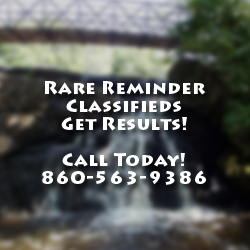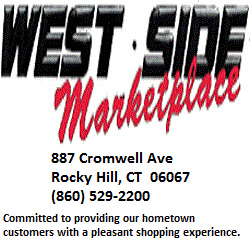

Joby Rogers (center) with The Righteous Brothers, Bill Medley (left) and Bobby Hatfield (right), at the Oakdale Music Theater in Wallingford.
Face the Music: Bill Medley of The Righteous Brothers
By JOBY ROGERS
MIDDLETOWN - Bill Medley is a seminal figure in the history of American music. He is perhaps best known as half of the remarkable duo, The Righteous Brothers. Their raw emotional rhythm and blues sound essentially created the genre â€Е"blue-eyed soul.” In the mid-1960s, the Righteous Brothers became a fixture on Top 40 radio with hits like â€Е"You’ve Lost That Lovin’ Feelin,” â€Е"Just Once in My Life,” â€Е"Unchained Melody,” and â€Е"(You’re My) Soul and Inspiration,” creating an ultra-dramatic take on 60s pop romance.
As a solo artist, Medley has earned a Grammy Award as well as an Oscar and Golden Globe award for his hit, â€Е"I’ve Had The Time Of My Life,” from the soundtrack to the 80s movie phenomenon Dirty Dancing. In March 2003, the Righteous Brothers were inducted into the Rock and Roll Hall of Fame.
I had an in-depth talk with Mr. Medley via phone from his home in Branson, Mo.
Your new book, The Time of My Life, is a detailed story of your partnership with Bobby Hatfield. Was it difficult to re-live some of those moments?
Doing the book was good news and bad news. There’s no reason in doing a book without telling the truth. I didn’t want to angle it to where it read like a negative thing. When I finished the book, I remember feeling really great about The Righteous Brothers and Bobby and what we did and how we did it. We were just young kids when we started and it turned into a great career.
Your early influences were rooted in rhythm and blues, primarily Ray Charles and Pasadena, Calif., duo Don and Dewey. Did you pattern your vocal approach and stage persona after them?
We just sang. We were 15 years old when we were influenced by Rhythm and Blues. We weren’t very interested in the white music. I kind of sang like Ray Charles for a while. I told Ahmet [ErtegГѓВјn] I feel odd because I feel like I’m just doing my impression of Ray and he said â€Е"listen, if any artist is smart, they ‘are’ Ray Charles for the first 10 years of their career.” There’s no question, from Elvis Presley on down, everybody learned from somebody.
When we did â€Е"You’ve Lost That Loving Feeling,” it opened up a different place in my voice and with the constant recording sessions I found ‘Bill Medley’ pretty fast. I certainly subconsciously used Ray, B.B. King, Bobby Blue Bland and Little Richard who were already embedded in my heart and soul.
What influence do you think The Righteous Brothers have on today’s music?
I’m constantly amazed when I talk to guys that came up in the 70s and 80s and they say what a big influence we had on them. Our main influence was that we were a white duo who were having success in R&B music and it gave them the okay to go ahead and try it. We showed them that you can sing with emotion.
The most poignant moment in the book occurs the night Bobby died in 2003 at the Radisson Hotel in Kalamazoo, Mich. It was you who discovered Bobby lying on the hotel room bed. It was after the fact when you really learned just how involved Hatfield had been in some risky behaviors. In retrospect, did you ever notice any signs of trouble before?
I knew that Bobby dabbled in some cocaine in the 70s when we weren’t together because I retired for about six years to focus on being a single parent. It never dawned on me that a guy in the 60s would be doing cocaine. I knew he was in horrible shape and I got on his case and told him to see a doctor, but he ultimately died of heart failure. I’m sure that cocaine over the years had contributed to his ill health. He drank and smoked and was the poster child for someone in bad health.
You stated that you had a very different â€Е"comfort zone” from Bobby. As your popularity grew and the size of the venues you played got bigger, it became apparent that you embraced the spotlight while Bobby would have been content with playing smaller clubs and staying closer to home, even turning down major television and magazine interviews. Did this ever concern you or make you question the future you two might have together as a duo?
I viewed Bobby as a different person than me and he wasn’t driven like I was. While researching for the book and talking to lots of people, I learned that Bobby just wasn’t interested in all that pressure and stress and didn’t want to really be a star. I’m sure he enjoyed parts of it. He just wanted to live his life, do some Rock n’ Roll and have a good time, which isn’t a bad way to approach this.
It’s fortunate that Bobby was present at The Righteous Brothers’ induction into the Rock and Roll Hall of Fame in early 2003, just months before he passed. What is your most memorable moment of that night when you were inducted by Billy Joel?
What was most amazing to me was hearing how the industry and other great artists felt about the Righteous Brothers--Sting, who went in with us, John Mayer and Steven Tyler expressed how stoked they were to meet us. Bobby and I didn’t have a clue of any influence we had on them. I thought, Jesus, how great it was that Bobby and I really meant something in the business.
â€Е"Blue-eyed soul” was rumored to be said for the first time by Georgie Woods, a popular Philadelphia-based DJ, specifically to describe The Righteous Brothers; sound. At the time did you like that correlation?
We loved it because it was coming from the black community. Blue-eyed soul, no more no less, is the sound of any white guy trying to sound black or singing black music. Georgie was on an all black station and he was just trying to hip his audience to the fact that we were white. We were going way against the grain. We were afraid that black radio stations wouldn’t play our music because we were white and white stations wouldn’t play it because we sounded too black. But we weren’t aiming for success. We recorded â€Е"Little Latin Lupe Lu” and it started our career. Sometimes we were bugged that certain acts called themselves a blue-eyed soul group. We considered groups like Dr. John, Rod Stewart and Bobby Seger legit because they stuck to their guns.
One of your first bookings was at an all black club in Watts in central L.A. called the California Club. What was the vibe in the club and how did you go over?
It was an all black club and a lot of black performers frequented there as well as when they were off the road. People like Sam Cooke and The Platters were frequent guests. Everyone there thought we were a black act, so it was real odd and it put a lot of pressure on us knowing that there were other performers out there in the audience while we were up on the stage singing music that they really knew about the music they were listening to.
You and your father had a challenging relationship that didn’t quell until after you left home. What kind of impact do you think that had on you as an artist?
I had developed twitches when I went through puberty. My dad and I kinda clashed during that time. But by the time he passed away we were best friends. I realized that he was one of the greatest guys in the world and I was just an a**hole, to put it bluntly. The combination of being very insecure about my twitches and worried that people were gonna make fun of me made me develop social anxiety and I think that when I went on stage and sang that a lot of that anger and pain came out in my music. My insecurities allowed me to be pretty emotional onstage. I’ve always felt that if you could take your demons and let them work for you that you’re probably gonna do pretty good in this business.
Phil Spector co-produced some of your greatest songs, including â€Е"Just Once in My Life” and â€Е"You’ve Lost That Loving Feeling.” Run me through the process of recording with Spector.
Between you and me, Joby, he wasn’t nearly as ‘out there’ as people believed. He always wanted people to think he was this Howard Hughes of Rock and Roll type of guy and the truth is that he really wasn’t. He was very sane but wanted people to think the opposite. He may have convinced himself that he was in his older days. I had produced our first three or four albums and I just knew that he was a stone genius. He was very easy to work with but he pushed us harder than I did and I certainly learned a lot from him and I have nothing but great memories of working with him.
â€Е"Unchained Melody” was a minor hit for several artists, including Roy Hamilton and Les Baxter, before The Righteous Brothers’ take on it. It was even a ‘B’ side to your single â€Е"Hung on You.” When it was featured in the box office hit Ghost, it had a global rebirth. Why do you think your version became the worldwide staple?
I arranged and produced â€Е"Unchained Melody” at Phil Spector’s request as a way to save on production cost. I think it’s a very beautiful and simple to-the-point song that just caught people at the right time.
â€Е"You’ve Lost That Lovin’ Feeling” remains the most played song in radio history. What do you hope the legacy of the Righteous Brothers will be?
I’m sure it will all be based around â€Е"You’ve Lost That Loving Feeling” and â€Е"Unchained Melody.” I’m so proud and so honored that the black community embraced us. They had every right in the world to say screw these white guys, we have a million black guys that can do what they do, we should support our own artist in our community. Instead they championed us. I’m most proud of and touched by that. It’s much more common in today’s music with artists like Justin Timberlake and my little brilliant friend from Hawaii, Bruno Mars. I’m proud of the fact that Bobby and I never got caught up in the Hollywood show business phoniness. We stayed the Righteous Brothers. We never took on managers. We had a great agent, Jerry Parenchio, who took us under his wing and kept telling us to do what we do.
The first time you heard from Elvis was a note he sent to you while you were in the hospital. And you were present at his ‘68 Leather Special. At one point he surprised you on stage. How surreal was that moment?
He surprised me onstage at the Hilton where he was working in Vegas. Every time he played, the main room they would put me in the lounge, which I always thought was Elvis’s idea. That boy got away with murder (laughs). We became very good friends.
2007’s Damn Near Righteous was your first solo record since the passing of Bobby. Was it a difficult process and how did you find your way through?
It was an odd process. I had already done a lot of recording on my own prior to that. It just felt odd to be in the studio recording or more so to be on stage, but going through the recording and performing process knowing there wasn’t going to be a Bobby Hatfield. Knowing I didn’t have that ace up my sleeve was odd.
What is the greatest opening lyric of all time?
(Sings) â€Е"You never close your eyes anymore when I kiss your lips.” I wish it wasn’t my record, but it is. The meaning of that song is to just say it all, man, you’ve lost that loving feeling and you’re not telling me. Barry Mann and Cynthia Weil wrote the lyric and melody and I never get tired of singing that song.
What advice would you give your younger self about getting into the business?
Oh, man! Business-wise there would be a million things I would do different. I was so into the music that I didn’t want to know the business end. I would have started a publishing company. It was all so perfect and all so wonderful, even the bad things were a great learning experience. Sitting here at 74, I just don’t think I would change a thing.
What is your â€Е"go-to” karaoke song?
â€Е"Georgia On My Mind” is just a freedom song for me that allows a singer to be a singer.
What about you would surprise your fans?
That I’m a softer and sweeter man than people perceive me to be. Especially now that I’m a father and that is paramount to anything else. I’m joined onstage now by my 27-year-old daughter, McKenna Medley. She’s a remarkable singer and the only one that I’ll allow to sing ‘Loving Feeling’ with me.
Any last remarks?
I’m at the age where they always want to give me an award of some sort. I’m enjoying that part of my life. I don’t feel that I’m a legend at all but I’m being treated like one and I’m starting to embrace that. I didn’t like that at first because I still want to be in the game. I don’t want to be on the sidelines. I still want to be out there on the stage fighting the war.








